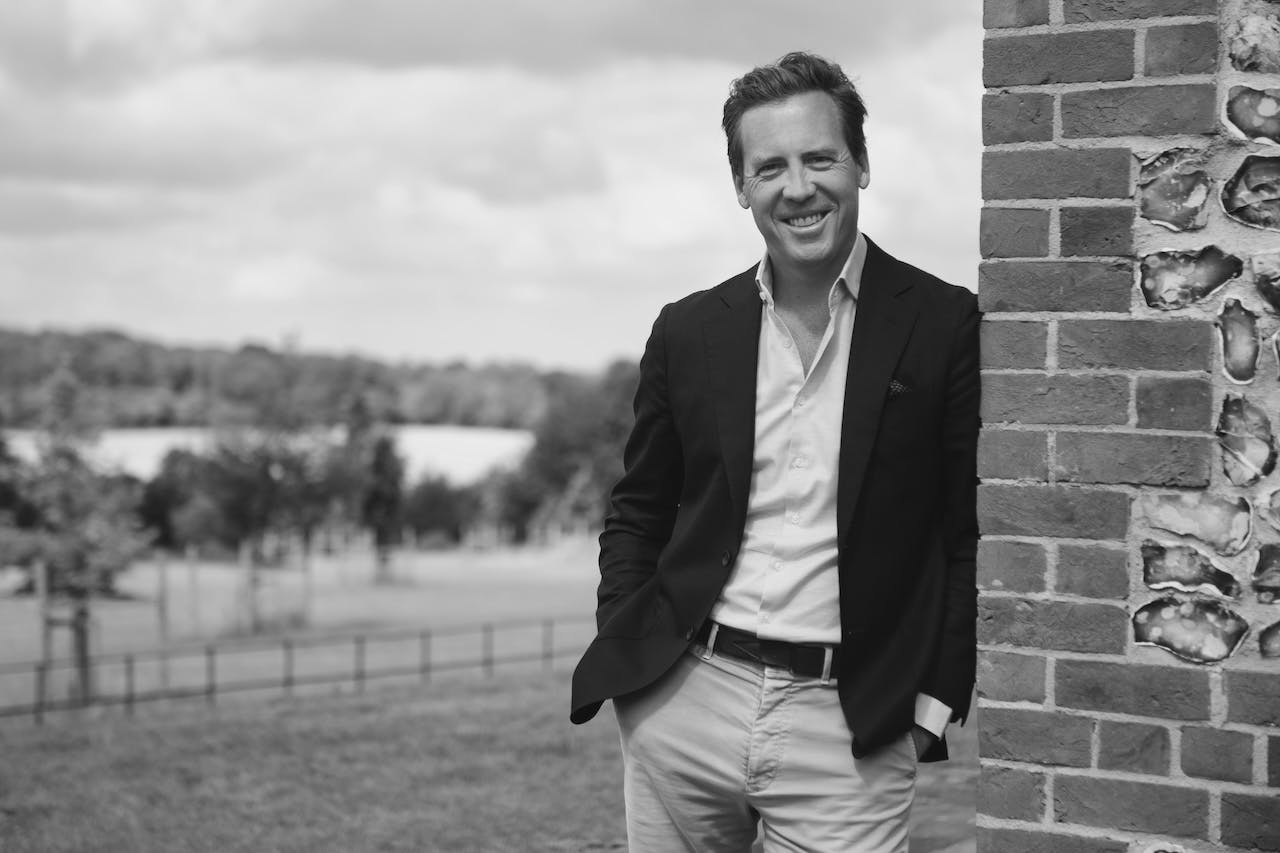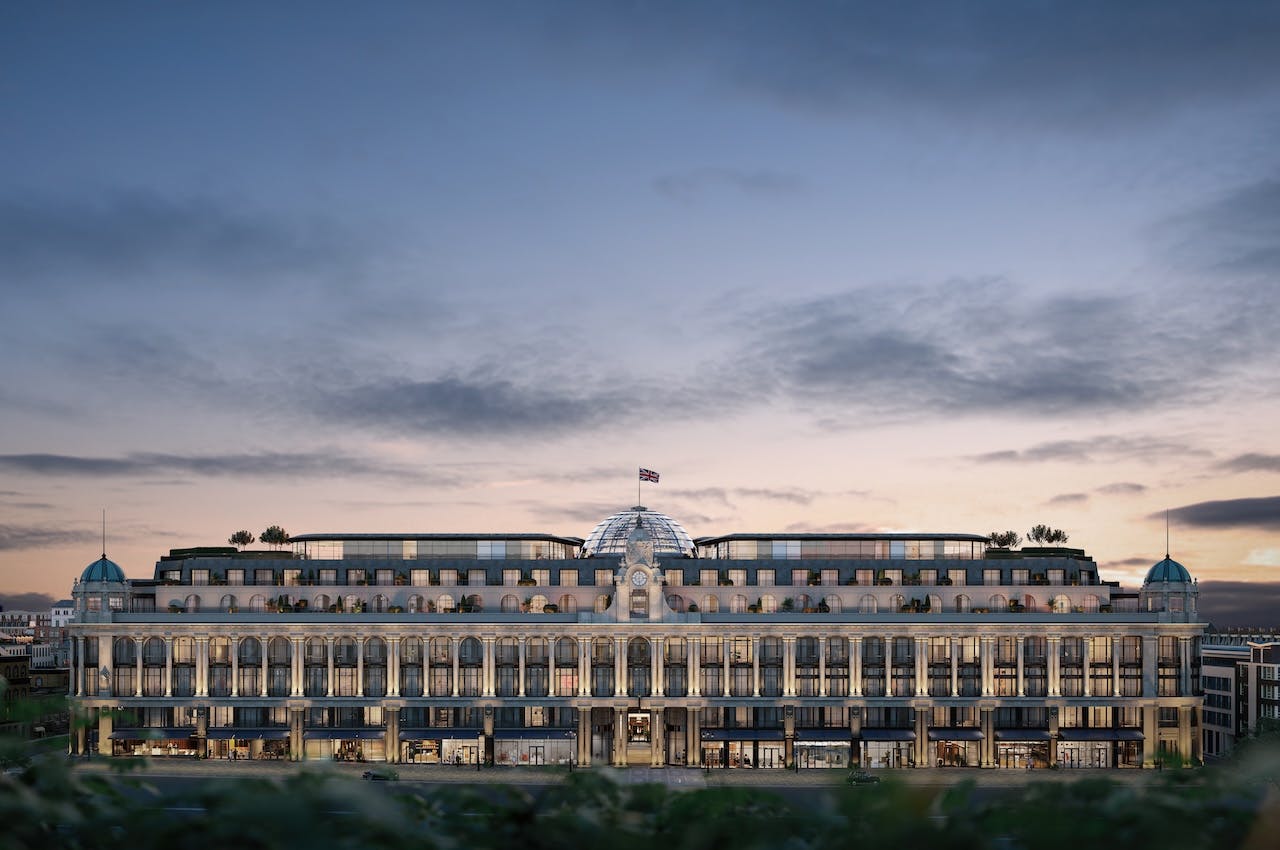PrimeResi meets Andrew Dunn, founder of legendary luxury developer Finchatton, to discuss the past, present and future of the business; what today’s HNW clients are specifying in their new homes; and the launch of the firm’s latest project – a groundbreaking Arts and Crafts “labour of love” in the English countryside…

You founded one of London’s most successful prime property firms in Finchatton; can you talk us through how the business has evolved and where the focus will be going forward?
Finchatton is above all a design-led and client-focused business. I started the company 23 years ago with a school friend, and our first projects were single units in Prime Central London, often in historic buildings.
At the time, we sold to domestic and international clients, who appreciated our ability to source great properties and who related to my love of great architecture and focus on superb design and understated quality. As interest rates fell and London became a key city for a large, and increasingly nomadic, international UHNW population, Finchatton became one of the pioneers of super-prime developments, working with some of the world’s leading hotel groups.
Today, in a post-Brexit, post-Ukraine, higher interest rate world, we are moving back towards single units, and smaller, multi-unit developments, while diversifying into the countryside and abroad. We continue to evolve to meet our clients’ needs, whilst always remaining true to the original vision of designing and building some of the best properties in the world.
We are moving back towards single units, and smaller, multi-unit developments, while diversifying into the countryside and abroad
Today we have 18 live developments on the go, with an anticipated GDV of more than £300mn and, frankly, I felt just as excited to get to work this morning as I did 23 years ago!
Finchatton has delivered some very high-profile developments over the years, from Twenty Grosvenor Square to The Whiteley, along with numerous single-unit projects; are there any particular themes running through the current pipeline, either in terms of scale or location?
It has been a real privilege to be involved in such high-profile developments over recent years, and we are now fast approaching the completion of our role as development manager for the 1.1 million sq ft regeneration of The Whiteley.
In terms of trends, perhaps unsurprisingly our domestic and international clients remain uncompromising on design and quality. They are now, without question, more mobile globally than ever before, and as a result we have seen increased interest in smaller, more efficient unit sizes in the best locations.

How personally-involved do you remain in each project, and what do you find most rewarding about the development process?
My day starts early, and I am involved with all of our projects. It’s what I do, and it drives me every day. We are very fortunate to have these opportunities and I have an exceptional team around me.
We work collaboratively to deliver developments of the highest quality, in terms of design, delivery and return, across both our own projects and those we are managing for clients. Because every Finchatton project is unique, I enjoy the challenges and rewards of each one.
As mentioned, if we can honour the heritage of a building but within that create a home equipped for life today, which incorporates the latest technology but maintains a sustainable approach, I find that extremely rewarding.
A new wave of luxury developers – including Finchatton – have raised the bar for residential schemes around the world in recent years, while the branded residence sector has blossomed; what are today’s wealthy buyers specifically looking for in a new residence? (e.g. sustainability credentials; different types of amenities)
The branded residence model has seen huge success over recent years. While the product and quality of the underlying development remains key to driving value, on Grosvenor Square we found great synergy in the collaboration between Finchatton and Four Seasons, one of the best in the global hospitality business.
We are seeing increased appetite for one-off unique properties and there is a real thirst for a meaningful sense of place and context. Many of our clients are now more focussed on regeneration and restoration, with sustainability also a subject of great debate at the moment. While we look at every project with this as the lead component in early design principles, the reality is that we have a long way to go.
However, I strongly believe that a building which is both designed and built well is in essence a more sustainable one. We build for the long term and generations to come.

Finchatton has brought some of the capital’s most iconic and beautiful buildings back to life, is there a particular project you are most proud of, and if so, why?
20 Grosvenor Square occupied the majority of my life for a decade. It was a marathon, and will always hold a special memory for me. My team was outstanding and the spirit everyone had in getting through the tough times was unrelenting.
I spend a lot of time in the building even now and it looks as good as the day we completed. Four Seasons are doing an incredible job in looking after it and we look forward to more collaboration with them.

Finchatton recently unveiled Millhanger Farmhouse, a new Arts and Crafts-inspired project in Surrey described as the “ultimate family home”; how challenging has it been to deliver, and what sets it apart from the area’s other top-end country residences?
Millhanger is a one-off and it has been a labour of love to get it across the line and launched to the market. The planning element took over 10 years but we are delighted that it was awarded on the grounds of exceptional design under Para 84e – making it the first ever Arts and Crafts house to achieve this.
We collaborated with Yiangou Architects on this project – one of the leading classical architects in the country, who contibuted a huge amount of skill and experience. We were very much aligned on creating something really special.
As a developer, I am passionate about this element – obviously it has to make sense commercially but the Finchatton DNA is to spend time and energy on the design and detail. We create something authentic, that looks outstanding but will also stand the test of time.

How are you finding the process of acquiring sites? Are things particularly competitive at the moment, and is there a specific attribute you always look for in a potential development project?
I am delighted that Anthony Kazan, previously Head of Central London Land at Knight Frank, and a long-time friend, has recently joined the team as our COO. As you are aware, it is competitive finding sites in London and Anthony brings a great network and many years of invaluable experience.
We have a live pipeline of over 300,000 sq ft currently which includes some exciting projects, all completely different. We are constantly looking for new and interesting opportunities.
Finchatton also provides an advisory offering, can you talk us through the rationale behind this, and how HNW clients are using the service?
Our clients are at the core of everything we do, and in recognition of this, Finchatton Advisory was set up to provide discreet, objective and professional advice to those acquiring property in the UK and around the world.
As we have grown over the past two decades, we have developed a deep understanding of what our clients look for and value.
Finchatton Advisory therefore allows us to provide high-level and specialised support and advice to our clients.
Despite some pretty bleak predictions at the beginning of the year, the prime property market has so far proven resilient; where do you foresee things headed in H2, and over the next five years?
It is often in more turbulent times that we have been able to generate growth. I am using this time of global change to review and reset – that is always a real positive for any business.
In real terms, we are driving growth and profitability by focusing on the prime residential market where we hold our competitive advantage and still see value, keeping our powder dry while the market stabilises to take advantage of opportunities as they arise.
Finchatton was always set up to be a multi-generational business, so we have a long way to go.
Are there any policies you would like to see the new government bringing in or changing to improve the way the property industry functions?
There has been a huge amount in the press since the election about the new government’s plans to build 1.5 million homes and reforming the planning laws.
I think everyone in our industry and in fact, everyone who has any interaction with local planning authorities, knows that change needs to happen in order to speed up the planning process and unlock growth
What’s the best advice you have ever received?
I would say the one most important thing I have learned from industry leaders over the years would be: “Find something you like, do it really well and then do lots of it”.

Contact Book
- Andrew Dunn
- Founder & CEO, Finchatton
- L. linkedin.com
In this article
Companies
FinchattonMain image: Andrew Dunn


